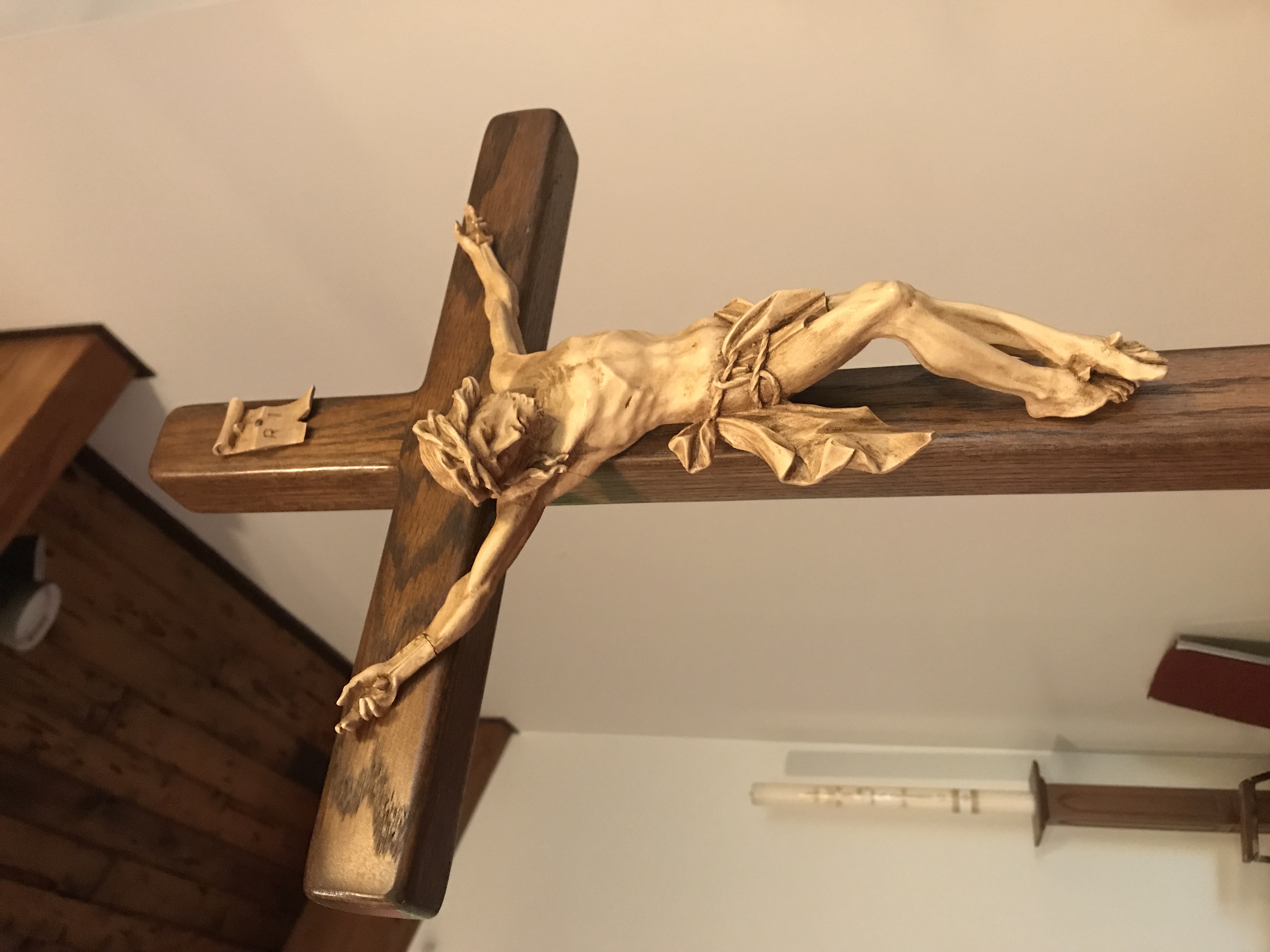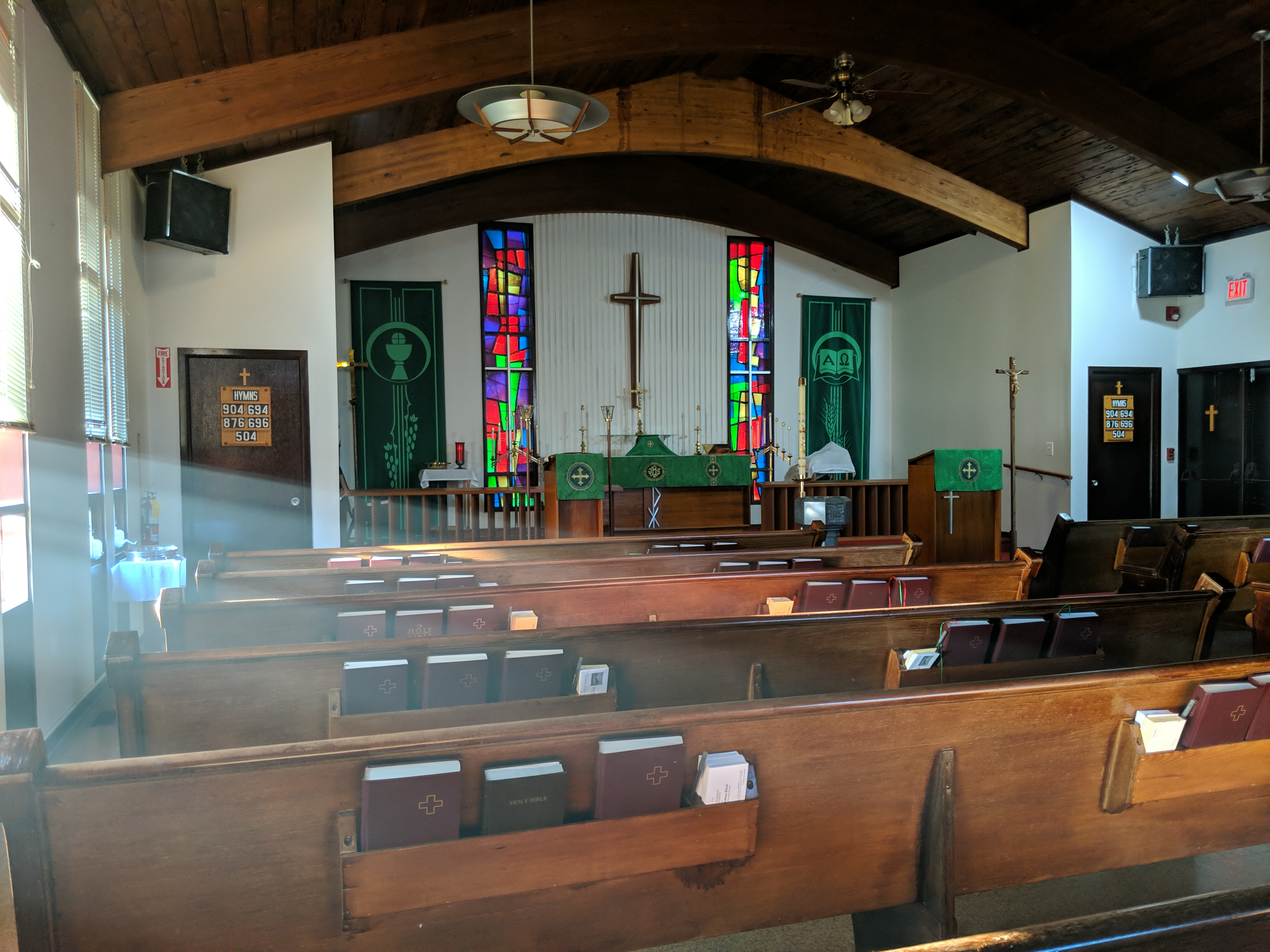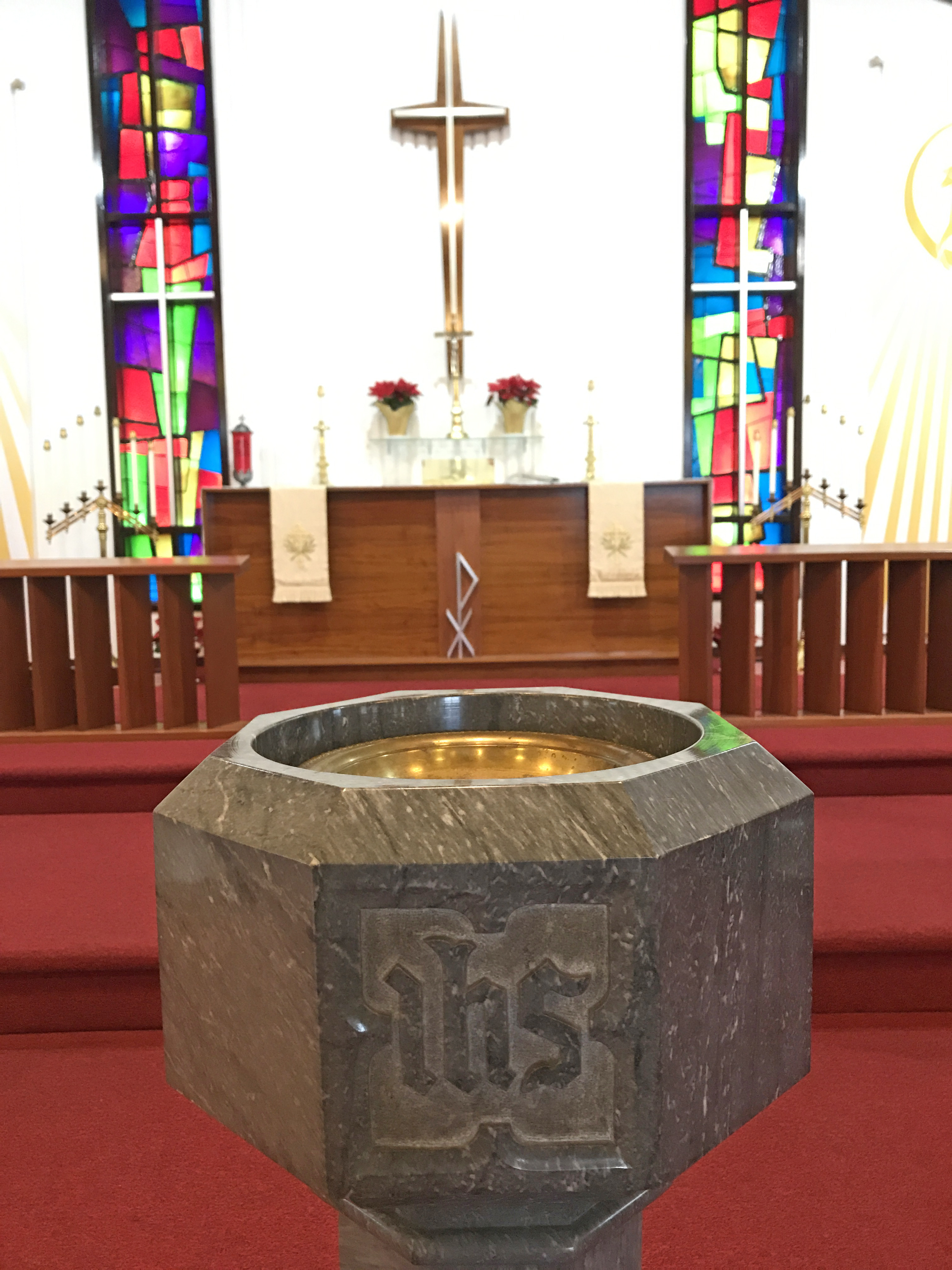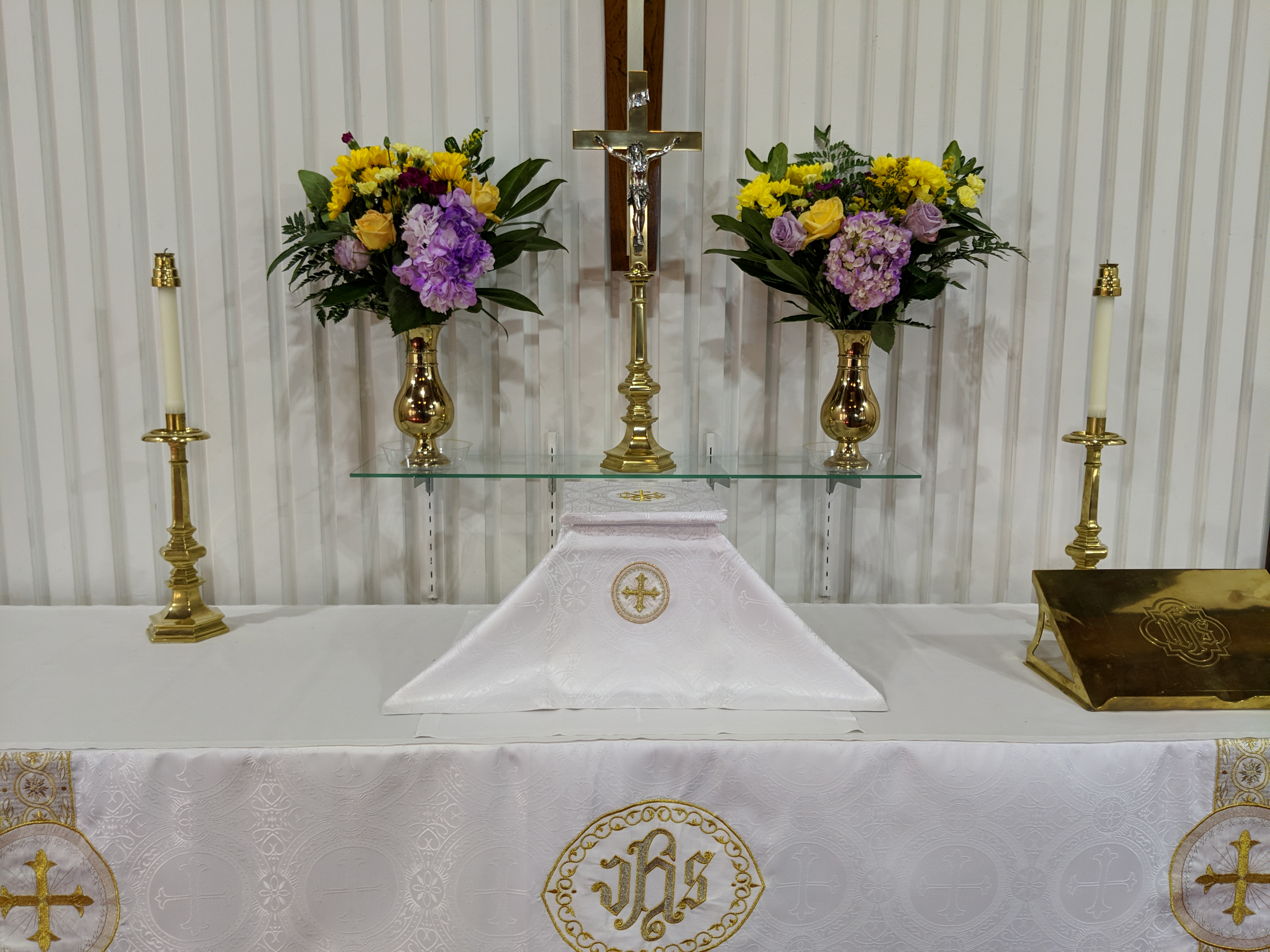The Epiphany of Our Lord – Sunday 7 January A✠D 2024
✠ Psalmody: Psalm 72:1, 2, 10-11;Isaiah 60:6b, 1;St. Matthew 2:2b
✠ Lection: Isaiah 60:1–6;Ephesians 3:2-12;St. Matthew 2:1–12
In the Name of the Father and of the ✠ Son and of the Holy Spirit. Amen.
Behold, the LORD and the Ruler is come: and the kingdom is in His hand, and power, and dominion. Now, for more than a month, we have begun this new Church Year by the preparation of Advent leading into the joys of Christmastide, praising our coming King Jesus at His birth, wrestling with the signs that He brings, especially within our own hearts as we ponder our own eternal destinies. We all end somewhere, or end up somewhere, that is, and the journey to our eternal dwelling place, whether for good or for ill, begins now, in this life. The Christian heart that is awakened, enlightened to the paths of righteousness, it hopes beyond the last breath. The Christian heart longs for the Light of life as the eye grows dim. The Christian heart doesn’t look here for the gifts that bring about blessings that endure, that bear us up now and through the portal of death into life to come. The Christian heart walks the path of God’s righteousness, for it has discovered, by the grace of God, that this path is far more than one that it should take. What is wrapped up in the righteousness of God is also His beauty, the very thing in which the heart alive in Christ finds joy and not mere commands. That same Lord leads such a heart by guiding it Himself, by being its Shepherd, and the heart responds well when it rejoices in the beauty of the journey upon which He leads.
If, as a congregation, all that we sing, all that we confess, all that we practice, all that we believe, all that we teach is built upon a common foundation, then what that foundation is made of must be of inestimable worth, for who would build upon Dollar Tree supplies flooded in from corner-cutting factories in distant lands? The Church’s one Foundation is Jesus Christ her Lord, and she only knows Him, she only believes, teaches, and confesses Him by what she has been told about Him in His Word. So, we must not ever treat His Word as mere ink upon paper, similar to our sewer bill. Such arrives. I look at it. I see what I must do and pay. I render my payment, toss the paper in the trash or shredder and go about the rest of my life that the sewer company has no right to be included in, unless there’s a blockage or backup in between my faithful bill-paying.
Such a view, one necessary for dealing with the things of this life such as my utilities use and payment, looks at the monthly bill merely as information about which I am to do something. It’s quite utilitarian because our generations are now primed and conditioned to just gather information that we think we need. We’ve grown worse than not stopping to smell the roses because our modern minds tend to treat God’s Holy Word, and everything that is built upon it, Sunday worship, the public reading of Scripture, songful response from regenerate hearts, as cold, lifeless exchanges of information. It’s the way that even the Epiphany of our Lord Jesus Christ can somehow be boring to us. We’ve ramped up for Christmas, had our presents, had our feasts, had our carols, topped it off with a celebration of a New Year, and now its back to the ordinary. So, maybe now I sit in church wondering why the Christmas decorations are still up; has pastor missed that it’s 2024; that Advent was now two Church seasons ago; and what information can I get out of a group of guys way back when coming from way over somewhere to way over there to worship a King they had heard about only to get there and find that He’s a plain-looking Baby with plain-looking parents hanging out in a plain-looking house. What’s the use in that information; in those decorations; in that Baby? Beware of the temptation to think, Pastor, I’m here, so tell me what information that I need to hear in this moment and let me be on my way. Beloved, Christianity is more than gathering information and weighing your response. Your Savior is far more beautiful than what your mind and heart are willing to admit or open up to.
His beauty is opened up to you, revealed to you in splendid depths inexhaustible in this life or the next. His Word isn’t mere information that you are to read, respond to, and move on while awaiting the next soundbite or online post. It is given to you to live and breathe in so that the joy you find in God becomes your delight and His. The real, transcendent joy that your Christian heart desires is the one only found in not withholding anything back from Him. Do not come to Him in His Divine Service hoping that He doesn’t, maybe fearing that He might, say something to you that is terribly inconvenient for the life that you hope to return to after encountering Him. C.S. Lewis describes such a situation in this way: This is my endlessly recurrent temptation: to go down to that Sea (I think St. John of the Cross called God a sea) and there neither dive nor swim nor float, but only dabble and splash, careful not to get out of my depth and holding on to the lifeline which connects me with my things temporal. The modern mind, in all its fallen un-glory, robs itself of divine joy by seeking to preserve some compartment of self for only self; not even God allowed there. Whether that be a day, a habit, or a hobby, such withholding can blind us from the gift of God’s revealed beauty in which we can find no higher delight.
The more you pry open the parts within into which you aren’t allowing God to shine, the more you spend time putting God’s voice into your mind by His Word, the more you fill your life with the regularity of being in Church and hearing that voice as we live out these Christian lives together, then the grander, the more majestic, the more stunning will the picture be that God paints of Himself in His Holy Scriptures for your adoration. The more the beauty of the Word grows in your eyes, the more your eyes will begin to notice and enjoy, even as they glance past the little things such as the crosses woven into the holy garments worn by Christ’s representative ministering to you in His house.
More glorious truth in seeking to see the beauty woven into the Holy Scriptures as we encounter texts, such as the wise men from the East, is that we all stand gazing with our ears at the intricate, divine account inspired by God the Holy Spirit Himself for us to hear and enjoy.
If you’ve come every Sunday since the beginning of Advent, you will have heard the paintings of God as we have taken in each week’s words. The Coming One, a King, Who came, comes, and will come again. Those days carried into details of that first Coming, building up now to one step beyond the 12 days of Christmas. St. John told us that He, the Son of God, the Eternal Word, was in the Beginning. There are too many other details from the Divine Services over the past month that have the potential to be rolling around in your mind, ready to be put together by the Holy Spirit dwelling within you, connections from the Scriptures that seek a place to fall into for your admiration as God reveals more of His majestic beauty to you while saving your soul in the process. These blessed words, these divine images stirred up in your sanctified imagination by the Holy Spirit and Word, build upon one another. The more you hear God’s paintings, the more you will see that you have to admire.
Even as we return to the Epiphany every January, the depth and beauty of God in His Word will never grow dull by His doing. There will always be plenty for us to delight in forevermore. For a picture admirable this morning, we look to the words that are attested to the chief priests and scribes of the people, but we are blessed to consider some of the picture landscape painted for us this morning, meaning let’s see some of the intricately detailed connections in the scene. St. Matthew writes, After Jesus was born in Bethlehem. This isn’t for a passing informational purpose, because every time you see that blessed Name, especially at this point after Advent and Christmas and what you have heard, you know that naming Him Jesus was a precious command from heaven to both Joseph and Mary, separately, by the mouth of the angel Gabriel. And by what you’ve heard, your mind and heart can give thanks to God as your ears hear that Name, the Name that means Yahweh saves, because it was given to Him because He will save His people from their sins. His people, not this people. Remember that?
After Jesus was born in Bethlehem of Judea. More not-just-information, but language to remind its hearers of the promise made by the Lord to bring forth a righteous Branch of David, from David’s royal city, Bethlehem. And more is to be said about this little place, but behold, our picture is growing more vivid for us.
…in the days of Herod the king. With all of the King language we heard throughout Advent, how could we not bolster but slightly at this mention of a king that is not named Jesus, but Herod, not to mention how Israel came to have kings in the Old Testament. Remember, they essentially told God that He wasn’t king enough for them. That they must have what the world had to offer: kings like the other nations had, earthly men to rule over them. God gave them what they wanted, and many, many of those kings turned out horribly, some even offering up their own children as sacrifices to false gods. Herod also has the lust of murder within him, much unlike the King of Peace, Who came in the order of Melchizadek, the Lord Jesus, the eternal King of the Jews born in Bethlehem.
Behold, wise men from the East came to Jerusalem, saying, “Where is He who has been born King of the Jews? Non-Jew men from far off came to worship the King of the Jews, who the little King Herod of the Jews sought to murder after learning of His birth. The ironic picture cannot better paint the picture of the heart of man that beholds its Savior and thinks, let’s kill Him, away with Him, crucify Him!
When asked where the Christ, the Messiah, the Anointed One of God, was to be born, St. Matthew records that the chief priests and the scribes answered little King Herod and said, In Bethlehem of Judea, for thus it is written by the prophet: ‘But you, Bethlehem, in the land of Judah, are not the least among the rulers of Judah; for out of you shall come a Ruler who will shepherd My people Israel. In this beautiful picture of God’s promise of old coming to pass, we are given a quotation from the prophet Micah, but with two magnificent tweaks, or strokes, if you will, to further deepen the picture and our adoration of God.
About Bethlehem, Micah wrote though you are little among the thousands of Judah, while St. Matthew quotes him as but you…are not least among the rulers of Judah. You are little…you are not least. Was Matthew changing Holy Scripture? No, he was bringing Micah’s implicit meaning, its world-changing fulfillment in the Babe born in Bethlehem, to our attention by putting the thoughts together for us in this way: you, Bethlehem, are little among the thousands of Judah, nevertheless you are not the least among the rulers of Judah, for out of you shall come a Ruler who will shepherd My people Israel. The richness of this picture grows as we admire God’s work, but wait, there’s more. We cannot in one sermon or in one day explore all the more here, but look at what else St. Matthew did with his quotation. He stopped quoting Micah and quoted something else from the Old Testament in expectation that you would either know that he had made these tweaks or that you would diligently search the Scriptures to find out for yourself what He was quoting and why. He wanted you to hear, to believe, and to admire the painting of salvation.
The beauty of St. Matthew’s final quote exchange is divine, because in that same verse Micah goes on to say about that coming Ruler that it is He Whose goings forth are from of old, from everlasting. Here, we hear complement to St. John’s Christmas morning Gospel in that in the beginning, creation’s beginning, was the Word. Micah’s prophecy highlights that not only is that true, but He, the Word, the coming King, Ruler, Shepherd, is literally from everlasting, from the days of eternity. In other words, it will be the one and only eternal Holy One of Heaven Himself Who comes forth from little ole, not the least, Bethlehem. And why Bethlehem? This is how St. Matthew beautifies the picture of Christ yet even more.
Instead of closing out his quotation by Micah’s own words about this Ruler, this King, being from everlasting, he brings us to the awe of the Word made flesh in this way: he cites words that the Lord spoke to a certain earthly king around a thousand years before Christ’s birth; an earthly king anointed after being brought in from the fields where he was tending to his father’s sheep as a shepherd. In 2 Samuel 5:2, we hear, …[T]he LORD said to you, “You shall shepherd My people Israel…” To whom was the LORD speaking? Who was this shepherd king? King David, who was a Bethlehemite, who was a man after God’s own heart, an earthly king over God’s people to whom was given the promise When your days are fulfilled[, David,] and you rest with your fathers, I will set up your seed after you, who will come from your body, and I will establish his kingdom. He shall build a house for My name, and I will establish the throne of his kingdom forever. I will be his Father, and he shall be My son…And your house and your kingdom shall be established forever before you. Your throne shall be established forever.” The eternal kingdom would come into the world through the Son of David, to Whom we say, “Lord, have mercy,” because He does.
So, in this Epiphany picture of the wise men coming, to Whom do they come to worship? They come to the One Who comes forth from the days of eternity; to the One through Whom all things were made; to the One Who looked down upon our rebellious souls and He came down Himself; He entered into that fallen creation to redeem it. The wise men come to the eternal One born into the promise to be the Son of David, to be the everlasting King of the Jews, to be the Almighty King of Kings, Jew and Gentile alike. The wise men lead the way for us, admiring the picture given to them by the Holy Scriptures and for us to do the same. They are led by the light of faith that is represented by the star. Their journey is like that of our entire life of faith as we live in this world, for we are led onward, always toward Christ by the light of faith in Him, our Ruler, our Shepherd, our King our Savior; them to Him at His First Advent, Us onward to Him at His Second Coming. We endure the journey, not begrudgingly simply because we should, but because the Light of Christ appears to us to give us love and desire for His beauty, a beauty that is our salvation, a beauty that we can admire with exceedingly great joy.
In ✠ Jesus’ Name. Amen.












Comments are closed, but trackbacks and pingbacks are open.